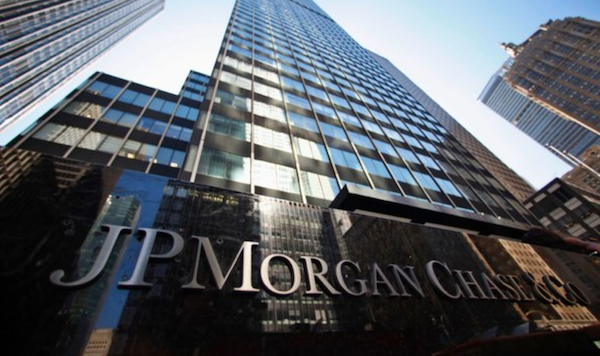Sign up for our free daily newsletter
Get the latest news and some fun stuff
in your inbox every day
Get the latest news and some fun stuff
in your inbox every day
The JP Morgan results out yesterday morning were very interesting, and have me scratching my head: the bank is in very good health, but the share price won't seem to go up. In the environment which we find ourselves of low interest rates and tepid economic growth, they are battling a little to sustain top line (revenue) growth and maintain net interest margins.
First, the numbers. They reported second quarter earnings per share of $2.82 versus the consensus of just $2.50. Net interest income (profits from lending) was solid, but guidance was weak. Negative once-offs and tax changes were matched by some windfall gains. Home lending grew but only a bit, consumer banking fee income was satisfactory and credit cards exceeded expectations. In the corporate and investment bank trading was relatively steady on slightly lower client volume. JP Morgan ranked #1 in global investment banking advisory work. The commercial bank grew revenue by 8% for the first half of the year. The asset and wealth management business grew assets by 7%, thanks to stronger markets and net inflows.
CEO Jamie Dimon commented: "We had a strong second quarter and first half of 2019, benefitting from our diversified global business model. We continue to see positive momentum with the US consumer - healthy confidence levels, solid job creation and rising wages."
Dimon also announced that JP Morgan would raise the quarterly dividend from 80 cents to 90 cents per quarter, and initiate a new $29 billion plus share buyback programme. That is great news for us long-term shareholders. Ok, so why is the share price languishing at $115 per share, where it trades on a price to earnings ratio of just 13 times?
There are two reasons that I can think of. Ever since the financial crisis of 2008/09, the shine has come off the banking sector. Large banks are tightly regulated and less likely to surprise. There is very little merger and acquisition activity in the sector. They have become rather boring. What is more, the sector is very competitive. JP Morgan competes with other global titans like Bank of America Merrill Lynch, Goldman Sachs, Citibank and Morgan Stanley.

The second reason is concerns over interest margins, given the plans of the Fed. JP Morgan lowered its guidance on net interest income for this full year to $57.5 billion, from an earlier forecast of more than $58 billion. On the post-release conference call, new Chief Financial Officer Jennifer Piepszak said that if there is more than one Federal Reserve rate cut this year, the actual income figure would be even lower. The current market consensus (which may change) is that there will be three rate cuts by the end of the year. If that happens, bank earnings may go lower.
One more point. Part of our thesis for owning banks is that they are huge users of technology, and there is much scope to lower costs by automating internal bank procedures. The word 'technology' was mentioned three times in the results announcement, in each of the consumer, corporate and asset management divisional commentary. In each case it was to explain a rise in non-interest expenses due to investment in new systems. Clearly, the big savings still lie ahead.
For now, we will hold this high quality investment and see how this all unfolds. We can afford to be patient.